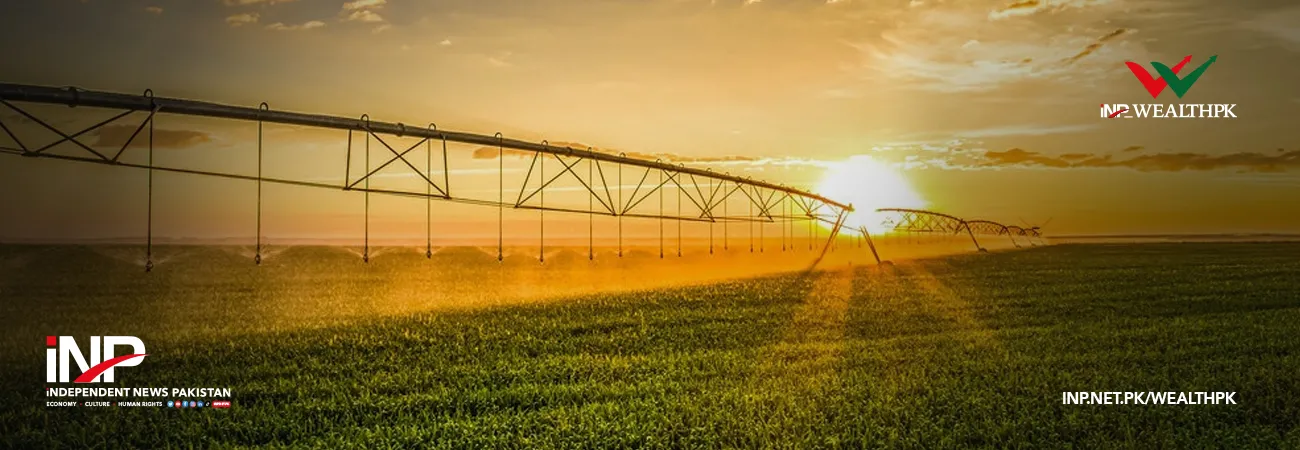INP-WealthPk
Arooj Zulfiqar
As Pakistan strives to address the challenges posed to its agriculture sector by climate change, an enhanced use of modern irrigation methods will mark a significant step towards more resilient and sustainable production processes. "There is a growing need for water conservation amid persistent shortages in the wake of the climate change. Every aspect of our economy, from energy to agriculture, depends on the availability of water, making it a crucial component of the national economy," notes Muhammad Azeem, a senior scientific officer at the Pakistan Agricultural Research Council (PARC). "With agriculture being the backbone of Pakistan's economy, the need for sustainable irrigation practices has never been more urgent than now. Traditional irrigation methods, reliant on flood irrigation, have led to inefficient water usage, soil degradation and decreased crop yields. Recognising these issues, the government is pivoting towards modern, high-efficiency irrigation systems to revolutionise the agricultural landscape," he said.
"Drip irrigation and sprinkler systems have proven to minimise water wastage and maximise crop yields. By delivering water directly to the roots of plants, drip irrigation reduces evaporation and run-off, ensuring optimal water utilisation. Similarly, sprinkler systems disperse water evenly over fields, mitigating water loss and improving soil moisture distribution. "One of the key objectives of this will be to alleviate the strain on Pakistan's water resources, which are already under stress due to population growth and climate change. The country aims to achieve significant water savings by transitioning to high-efficiency irrigation systems, thereby preserving its limited freshwater reserves for future generations," Azeem explained. "Furthermore, the adoption of modern irrigation technologies is expected to enhance the resilience of Pakistan's agricultural sector against the impacts of climate change. With erratic weather patterns becoming increasingly common, efficient irrigation systems can help farmers adapt to fluctuating conditions and maintain stable yields throughout the year," he said. The PARC scientist said that the expansion of high-efficiency irrigation systems also held promise for smallholder farmers, who constitute a significant portion of Pakistan's agricultural workforce.
"By providing access to these advanced technologies and promoting sustainable farming practices, the government seeks to empower smallholders to improve their livelihoods and contribute to national food security." However, he said the successful implementation of the initiative would require concerted efforts from stakeholders, including government agencies, agriculture-related institutions, private sector partners and local communities. "Adequate investment in infrastructure development, farmer education, and research and development will be crucial to ensure the widespread adoption and sustainability of high-efficiency irrigation systems." Pakistan's crop water productivity falls behind the global average, with wheat and rice crops exhibiting lower yields per unit of water. The current water productivity of wheat stands at 0.76 kilogrammes per cubic meter of water, 24% less than the global average of 1kg per cubic meter. Similarly, the water productivity of rice crops measures 0.45kg per cubic meter, approximately 55% below the average value for rice in Asia.
INPCredit: INP-WealthPk













